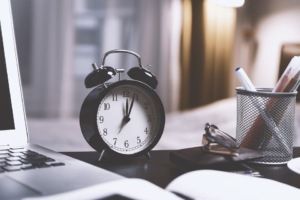News
Science and Energy News in Brief: Danes have more free time
This article is more than 7 years old.
Elsewhere, Denmark eyes eyes green energy in North Sea, a ‘green’ cheese is developed and a big whale finds its way into Mariager Fjord

Time better spent (photo: Pixabay)
If you’ve ever worked in Denmark, it’s pretty difficult to take Danes who say they are stressed at work too seriously.
And a new survey from the Rockwool Foundation has shown the Danes enjoy more free time now compared to ten years ago – three hours more per day to be precise.
“From the numbers we can see that the Danes spend considerably more time on their family and themselves. Meanwhile, we spend less time on dull household chores like cleaning, cooking and grocery shopping,” Jan Rose Skaksen, the head of research at Rockwool Foundation, told TV2 News.
READ MORE: Denmark has best work-life balance for expats in the world
What matters most
The survey found that mothers spent two hours (and fathers 1.5) with their children every day in 2008 – a figure that has increased by an hour for both parents in 2018. And that’s despite the working hours being about the same.
According to lifestyle expert Henryk Byager, the Danes have embraced a shift in values since the financial crisis in 2008.
“It’s about spending time and money on what matters the most and pushing away the redundant and worthless. Having a good job is one of the biggest values for Danes – but also having a close-knit family life and hobbies that provide the palette of life with ample colour,” Byager told TV2 News.
The survey showed that Danish men have almost 30 minutes more spare time per week than their female counterparts.
Denmark eyes green North Sea adventure
Today, the government has decided to reserve large swaths of the North Sea for the state development of offshore wind energy. The energy and climate minister, Lars Christian Lilleholt, has revealed that the price of wind energy has dropped to the point where the government expects to be able to establish offshore wind turbine parks without funding support. That will also require a significant upgrade of the national electricity grid, which could cost billions of kroner.
DTU Space in Antarctica discovery
Using radar measurements from aircraft, DTU Space has made contributions to a new discovery on the freezing continent of Antarctica. The researchers have discovered a massive area under the ice, which is about the size of Funen and melting faster than expected. The find, part of the British Antarctic Survey, could be down to radioactive cliffs and warm water streaming up from the underground, thus accelerating the melting process.
Blue cheese? Try green cheese
A team of international students at the Technical University of Denmark (DTU) have won an award for an innovative vegan cheese that reduces food waste and has a minimal climate footprint. The product, called Cheese it Yourself, won the Grøn Dyst award and silver at the international competition in Paris, Ecotrophelia. The cheese consists of a mix of plant-based ingredients that customers can bring home and mix with water from chick peas. The mixture is then boiled for about five minutes and then cooled to produce a cheese that is without additives and can last for about five days.
Whale ho in Mariager Fjord
A big minke whale about ten metres in length turned heads in Jutland on Tuesday after it was found very close to a pier in Mariager Fjord. The whale was alive, but perhaps stranded, before three bystanders jumped into the cold waters to push it free. Experts pointed out that the whale was likely ill and dying, which is why it had made its way to the fjord. The minke whale is the second smallest of the baleen whale species and is found in the north Atlantic, north Pacific and Antarctic oceans.
Legendary lighthouse ship teetering
The world’s oldest lighthouse ship, Fyrskib No X, came close to tipping over in Copenhagen Harbour this week due to low water levels. Low water levels due to the storm this week left the ship resting on its keel and it risked teetering over and taking in water. However, emergency response units managed to keep it upright until the water levels returned to normal. The ship, which has been converted into a houseboat, was built way back in 1877.










































